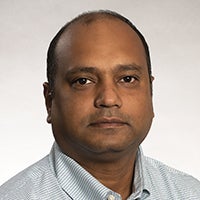Saleh Ahmed, PhD
About Me
Assistant Professor

School of Public Service
Boise State University
1910 University Drive
Boise, Idaho 83725-1535
Phone: (208) 426-2514
E-mail: salehahmed@boisestate.edu
Office: Environmental Research Building 4137
Research Areas
As an interdisciplinary environmental social scientist, I analyze the complex but dynamic relationships between climate and society. Most of my works are solutions-driven responding to societal needs and policy relevance. My current research focuses on climate risk management and resilience planning, land use change and growth management, and the United Nationals Sustainable Development Goals.
One of the most recent research projects I have been involved in investigates the use of weather and climate information in farm-related decision making in climate vulnerable coastal Bangladesh. Findings report the variations in social vulnerability and differential adaptive capacities and access to adaptive resources due to gender, ethnicity, income, and religious differences. I argue that global environmental change is increasingly contributing to shape social injustice. Informed by political ecology, critical development studies, and systems thinking, I use a mixed methods approach to unpack complex human-environmental relationships.
My work also focuses on the Intermountain West (CO, ID, MT, UT, and WY), where I conducted research on the impacts of land use change on agriculture outcomes. My findings suggest that often it is no thte net population growth, but rather how people distribute (clustering vs disperse) over space in non-metropolitan areas, determines the impacts on agriculture and other ecosystem services.
Collaboration
I am interested in collaborating on transdisciplinary research projects and outreach efforts that attempt to unpacks the delicate relationships between climate and society. Currently, I am developing some research projects on (a) the impacts of globalization and climate change on local livelihoods; (b) intersections of income level, gender, ethnicity, and religion in climate vulnerability and adaptation; (c) social-ecological traps and sustainability/resilience pathways; (d) growth management and socio-cultural sustainability. Please feel free to reach out to me if you find some overlapping interests and/or potential collaborations.
Teaching
- GLOBAL 302: Social and Political Change in the Global South
- GLOBAL 101: Introduction to Global Studies
- ENVSTD 498: Seminar: Environmental Studies (Topic: Evaluating UN Sustainable Development Goals)
Community Partners
International Centre for Climate Change and Development (Bangladesh)